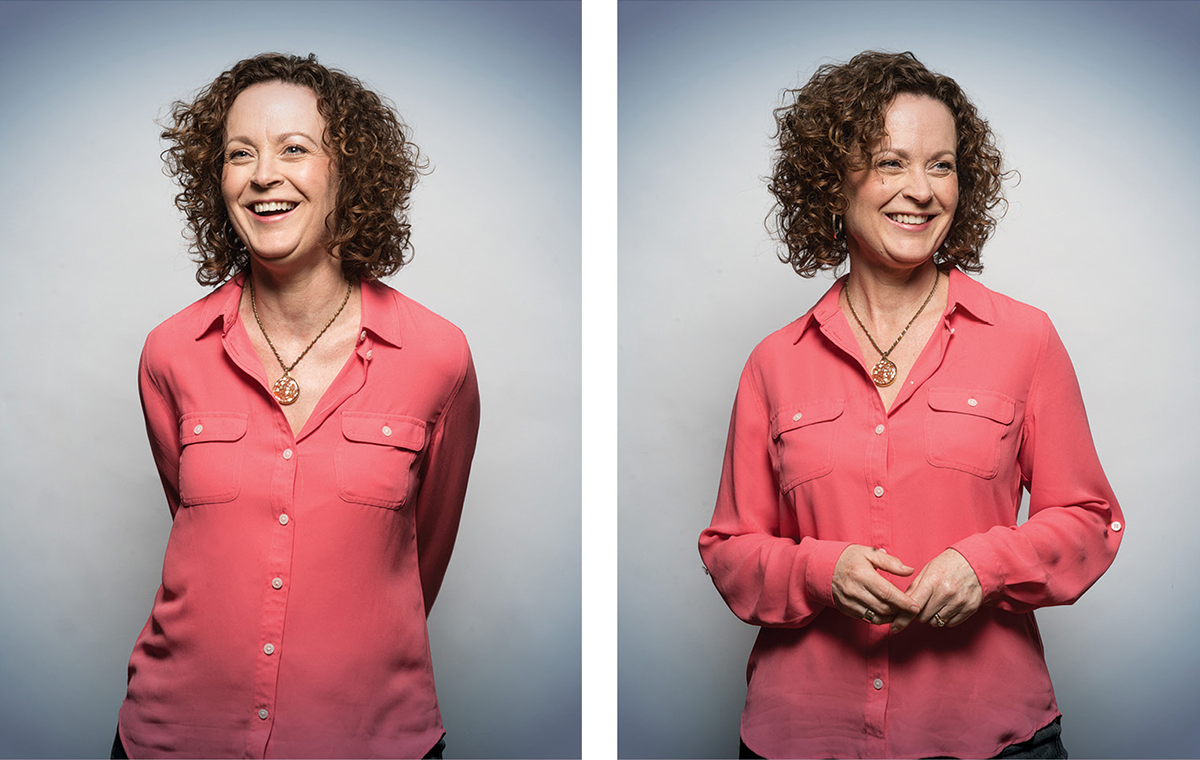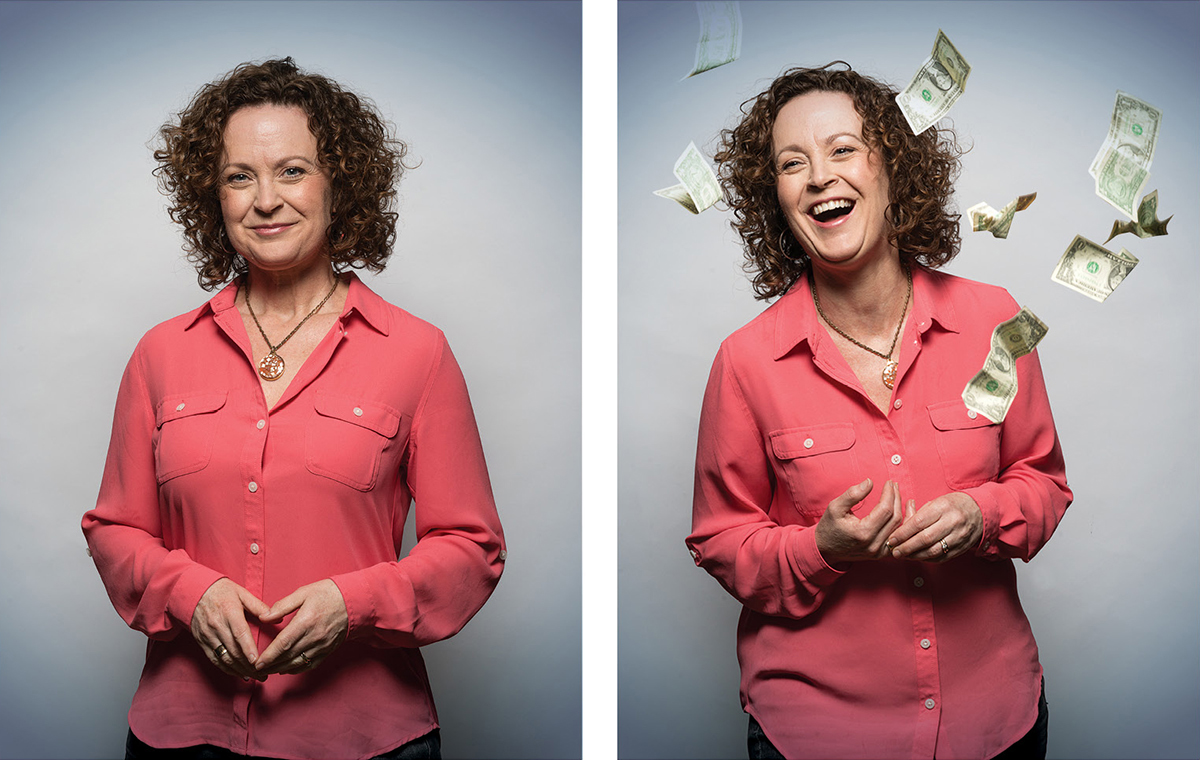The Money Maestro: Society of Grownups’ Rachel Rabinovich

Photographs by Toan Trinh, hair and makeup by Alicia Dane/Team
Marrying the love of your life may be a dream come true, but footing the bill for the celebration can be the stuff of nightmares. Enter Rachel Rabinovich, a certified financial planner at Brookline’s Society of Grownups. As an instructor at the self-described master’s program for adulthood, Rabinovich often works with couples in the process of planning and saving for a wedding—and the rest of their lives together. Starting in June 2016, she’ll be hosting a new “supper club” course—complete with dinner and wine—called “Before I Do,” which caters to brides- and grooms-to-be. “I encourage couples to remember that they’re a team,” Rabinovich says. “Their financial success becomes more likely when they come together on their values and goals, and when they can find a system that works for both of them.”
Let’s talk about the “M” word. What money-related conversations should a couple have before tying the knot?
It’s important to think about your financial values and share them with your partner. We all have different relationships with money that inform our behaviors around spending and saving, and I encourage people to be candid about their financial histories. If a partner has had problems in the past, it’s really important to get those on the table so you can talk about them and make a plan of attack. Couples should think about their individual and joint goals, and what they want for the future. It’s also not a bad idea to talk about hypothetical situations as well, like what you’d do if one of you has an opportunity to be relocated for work or gets a raise.
Planning a wedding can be daunting, especially from a financial standpoint. Where’s the best place to start?
First, you need to talk about what’s important to you as a couple and how you want to allocate your budget. For example, is it important to have your whole family at the wedding, or would you rather put money into the food or the venue? You also need to get a handle on who’s paying for the wedding. Are your parents going to help, or are you paying for the whole thing? Like with any other money conversation, it’s really important to be open and honest. Go in with low expectations, and be respectful of what each person’s financial situation is.
Taking out a loan for your ceremony and reception—worth the investment, or crazy idea?
I would hate to see a couple go into debt over a wedding. If that happens, what other goals are going to be put on hold? Is it going to affect getting those student loans paid off, saving for retirement, having an emergency fund, or the ability to travel? That’s why it’s important to figure out what’s important at the beginning.

So how should brides and grooms go about creating their big-day budgets?
You want to have a target amount that you’re working toward and a deadline. Figure out how much you need to save. Is it realistic? Consider your income and the expenses that have to be paid each month. Once that’s determined, you can take a portion of the money that’s left over and direct it toward your wedding fund. But don’t forget your other saving and debt-repayment goals. It’s important to keep those things in mind even though the immediate priority might be the wedding.
Are there saving strategies that work better than others?
It can be helpful to automate the process. If you’ve decided as a couple that you can put $500 a month toward the wedding, set up a plan where the money goes right into your savings account so you can’t spend it. Consider creating a joint account and earmarking it as a wedding fund.
Speaking of joint accounts: What’s the best way for newlyweds to merge their expenses?
I see every way you can imagine. I’ve spoken with couples about three different scenarios: bucketing money in one account, keeping things separate, and doing a hybrid of individual checking accounts for discretionary expenses and a joint account for shared expenses or savings goals. I really haven’t seen that one works better than the other. It really comes down to what feels right for the couple and how they handle money.
What financial moves do you recommend couples make after the honeymoon is over?
I encourage people to save for retirement and make sure they have an emergency fund for a job loss or if the roof caves in [laughs]. The general rule of thumb is to keep three to six months of your core living expenses on hand in a savings account. In terms of saving for retirement, putting away a little bit of money on a regular basis will go very far. It’s hard to think about retirement in your twenties and thirties, but I would encourage people to get started as early as possible.
1653 Beacon St., Brookline, 617-505-3636, societyofgrownups.com.
Tips
Talking finances with your future spouse just got easier with these pointers from Rachel Rabinovich.
Set a Date: Find a neutral, comfortable place to have the money conversation—a coffee shop, a local park, even your kitchen table—and have regular check-ins afterward to make sure you’re still on the same page.
Come Clean: Giving your betrothed a complete rundown of your financial health, from credit card debt to credit scores, will help you plan for your future.
Set a Budget: Apps like Better Haves and Mint, spreadsheets, or even just a pen and paper will make reaching a consensus easier.
Stay Calm: It’s never a good idea to discuss finances in the heat of an emotional moment, so don’t hesitate to table the conversation if it becomes too difficult.
Getting married? Start and end your wedding planning journey with Boston Weddings' guide to the best wedding vendors in the city.


